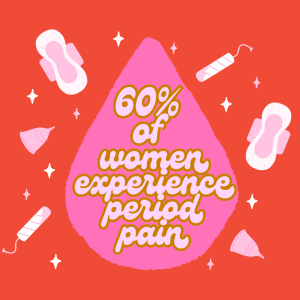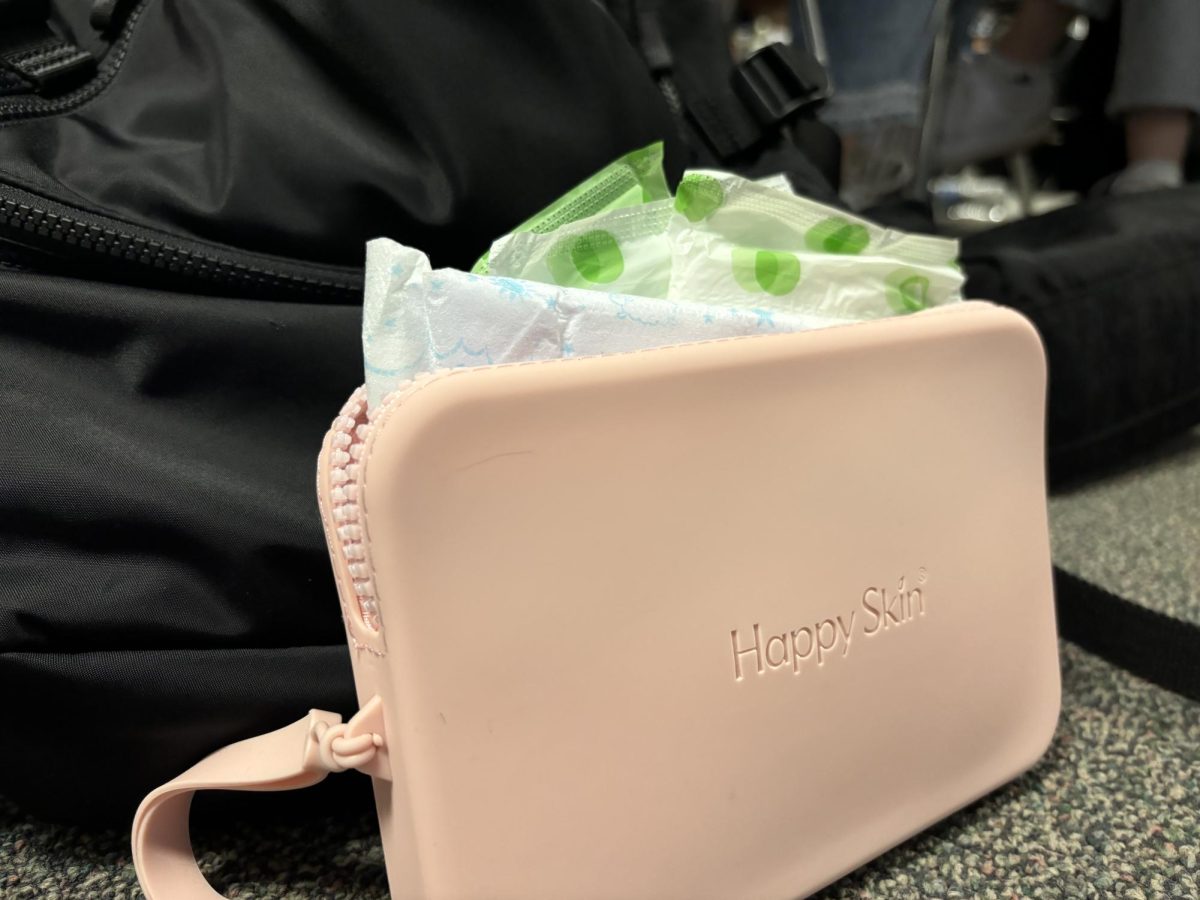Senior Stacy Saucedo is recovering from the feeling of being punched in the stomach, “at least three times”. Or at least, she would like to move on, but the pain returns every month, often to the extent that she starts crying.
“The pain is just kind of there, and no matter how many times you move, or you squirm around, or you try to find a comfortable position, it just gets really hard,” Saucedo said. “So you just kind of give up, and you have to suck it up and deal with the pain.”

Period pain, otherwise known as dysmenorrhoea, affects around 60% of women at some point in their lives. Severe cramps are caused by the uterus contracting to shed its lining and can be accompanied by premenstrual symptoms like bloating, mood swings, and tiredness.
“Being on your period is like being at your lowest of lows,” senior Margaret Zheng said. “First of all, you’re leaking blood and it’s not fun. Second of all, your hormones are at an all-time high and you’re really emotional and things can easily trigger you, but you obviously don’t want to cry at school because that’s embarrassing or whatever.”
Zheng describes getting her period at school as “horrible” – not only are there logistics to contend with, like having to navigate to the bathroom to change her pad, but her symptoms have affected her academic performance.
“My grades during my period week [are] like, hello, very low,” Zheng said. “I’d say when you’re on your period, taking tests is a lot harder, especially since like I feel like I need to pee every like two seconds and then also it’s just uncomfortable. You’re leaking blood, [so] it’s kind of hard to sit still and take a test, especially when I’m cramping.”
Campus Nurse Laura Arena said she often sees students in her office because of period cramps. While girls used to be allowed to lie down with heating pads, Arena now prescribes speedwalking for 5 minutes – exercise can block the secretion of the prostaglandins that cause period pain.
“In high school, we have to start thinking about preparing for the real world, getting out there, getting a job,” Arena said. “When you get a job, they’re not going to let you go lay down for 30 minutes because you have your period. So you have to learn how to do effective management.”
To cope, Zheng brings hot water to school. She said she can count on other girls for an extra pad or emotional support, but she finds it “infuriating” when people underscore the pain of period cramps.
“They just think it’s fine because most girls learn how to deal with it over time, but they don’t know it’s really painful,” Zheng said. “When guys are like, ‘oh, but does it actually hurt?’ Yes, it does, bro. Yes, it does.”
Senior Yuxiang Tian said his knowledge about periods is limited to what he has learned in health class, but he thinks men should care about the issue.
“It’s just something they themselves can’t empathize with, and it’s something that other people like the women in their lives have to deal with,” Tian said. “It’s just important to care about other people.”
Over time, Arena said she has seen the topic of periods change from a taboo subject to a more accepted norm. Though Saucedo said she feels awkward bringing it up with others, she thinks society needs to be more accepting.
“It’s a natural thing that females do, you know?” Saucedo said. “It’s a human experience, so I don’t think that that should be hidden, I think it should be more talked about.”
Because the thing is, at the end of the day, all those girls fighting invisible battles against period pain? They won.
“[Women] deal with period pain and they get so used to it to the point where they can carry out a normal day [and] do normal activities while dying inside,” Zheng said. “I think that kind of builds strength over time. And so we can deal with pain better. We can deal with hard situations better. We’re trained for it from 12.”
This story was originally published on The Round Up on October 15, 2024.




































